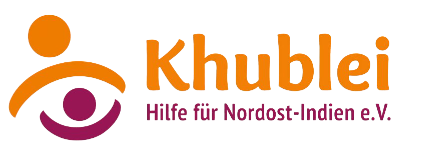| INFO | Die Corona Hilfemaßnahmen werden von den Projekten zur Existenzsicherung fortgeführt. ➜ Existenzsicherung |
Corona – Dringender Hilferuf aus Nordost-Indien
Sehr viele Wanderarbeiter haben ihre Arbeit aufgrund der Schließung von Unternehmen, Tourismus, Hotels, Flughäfen usw. verloren. Eine große Zahl von ihnen lebt nun wieder zu Hause und hat keine Arbeit, um den Lebensunterhalt zu verdienen. Ihr Heimatland wollen sie nicht verlassen, da sie sich an anderen Orten nicht mehr sicher fühlen.
Jetzt geht es darum, den Betroffenen, zu denen insbesondere Wanderarbeiter und arme Menschen gehören, zu helfen, eine eigene Tätigkeit aufzunehmen und eine eigene Einnahmequelle aufzubauen. So können sie auf eigenen Füßen stehen und sind nicht auf andere angewiesen, was ihre Ernährung und andere Grundbedürfnisse betrifft.
Es besteht die dringende Notwendigkeit, ihre Selbstständigkeit zu fördern und für den Fall von Katastrophen etwas ansparen zu können, damit sie künftig überleben können, ohne vollständig von anderen abhängig zu sein.
A. Sofortmaßnahme: Warenkorb für eine Familie
– Kosten: 20 EUR/Familie
Nutzen: Der Warenkorb für die Unterstützung einer Familie (6-7 Personen) mit Nahrungsmitteln kostet im Monat 20 €. Er beinhaltet Reis, Gemüse, Zwiebeln, Linsen, Öl, Gewürze, Zucker und Salz.
Hilfe zur Selbsthilfe
Wir wollen die Wanderarbeiter und Armen in spezifischen Schulungen ausbilden und unterstützen. Die Schulungen sollen ihnen helfen, eine eigene Arbeit und ein eigenes Geschäft aufzubauen.
B. Folgende Maßnahmen bieten wir an:
1. Geflügelaufzucht
– Kosten: 170 EUR/Familie
– Schulung in der Aufzucht von Geflügel und Führung von Kleinbetrieben
– Bau eines Geflügelstalls
– Beschaffung von Futtermitteln
– Beschaffung von 100 Küken
Nutzen: Diese Tätigkeit erfordert relativ wenig Startkapital im Vergleich zur Aufzucht von anderem Vieh. Das bedeutet, dass Kleinbauern und sogar Landarbeiter im Kleinen mit der Farmarbeit beginnen können.
Während die Hühner in 8 bis 10 Wochen beginnen, Eier zu legen, können sie nach 6 Wochen verkauft werden, wenn sie auf ein Gewicht von 1,25 kg angewachsen sind. Die Investition macht sich schnell bezahlt. Der Abstand zwischen den Generationen ist sehr gering, so dass die Produktion innerhalb kurzer Zeit gut gesteigert werden kann.
2. Verarbeitung von Agrarprodukten in Selbsthilfegruppen
– Kosten: 570 EUR/Selbsthilfegruppe (10 bis 15 Frauen)
– Einweisung in die Geräte
– Beschaffung der erforderlichen Geräte wie Mühlen, Siebe, Mahlwerke,..
– Marktzugang aufbauen
Nutzen: Wegen des Mangels an Verarbeitungsgeräten besteht eine hohe Nachfrage nach Agrarprodukten. Die Verarbeitung von Agrarnahrungsmitteln wie Ingwer, Kurkuma, Tomaten, Früchten usw. und deren Verkauf wird nicht nur das Einkommen der Bauern erhöhen, sondern auch neue Beschäftigungsmöglichkeiten schaffen.
3. Schweineaufzucht
– Kosten: 136 EUR/Familie
– Schulung in der Aufzucht von Schweinen und Führung von Kleinbetrieben
– Bau eines Schweinestalls
– Beschaffung von Futtermitteln
– Beschaffung von 2 Ferkeln
Nutzen: Die Förderung der Schweinefleischproduktion ist der ideale Weg, der steigenden Nachfrage nach Schweinefleisch auf den Märkten nachzukommen. Gleichzeitig bietet sie Armen und Marginalisierten eine Existenzgrundlage oder ein Zusatzeinkommen.
Die Schweinezucht erfordert wenig Platz und ein relativ geringes Anfangskapital pro Stück Vieh. Die leichte Verfügbarkeit von Ferkeln, Tierfutter und Medikamenten auf dem Markt macht sie zu einer lebensfähigen Wirtschaftstätigkeit.
4. Kerzenherstellung
– Kosten: 113 EUR/Selbsthilfegruppe
– Schulung in der Kerzenherstellung
– Beschaffung der Gerätschaften
– Beschaffung des Rohmaterials
– Marktzugang aufbauen
Nutzen: Die Herstellung von Kerzen ist recht einfach zu erlernen und kurzfristig umzusetzen. So kann die Selbsthilfegruppe durch den Verkauf der selbst hergestellten Kerzen schnell zu Umsätzen kommen, die es ihr ermöglicht, im Gegenzug Nahrungsmittel und Dinge des täglichen Bedarfs zu erwerben.
5. Bienenzucht
– Kosten: 100 EUR/Selbsthilfegruppe
– Schulung in der Bienenzucht
– Beschaffung von Bienenstöcken
– Beschaffung von Bienenvölkern
– Marktzugang aufbauen
Nutzen: Selbst hergestellter Honig sichert im ersten Schritt unmittelbar die eigene Ernährung der Gruppe und bietet im nächsten Schritt eine Einnahmequelle, um andere Grundnahrungsmittel kaufen zu können.
6. Pilzanbau
– Kosten: 100 EUR/Familie
– Schulung in der Pilzzucht
– Bau eines Schuppens
– Beschaffung von Substrat und Pilzmyzel
Nutzen: Die Pilze aus dem Eigenanbau helfen der gesamten Familie bei der Versorgung mit Nahrung. Durch Tauschgeschäft oder durch den Verkauf auf dem Markt eröffnet sich ihr die Möglichkeit zum Zugang zu weiteren Nahrungsmitteln.
7. Schulung in spezifischen Fertigkeiten
– Kosten: 1.136 EUR/30 Personen für 3-tägige Schulung
– Schulung im hauswirtschaftlichen Bereich: Kuchenbacken, Einmachen von Früchten/Gemüse, Einkochen von Marmelade, etc.
– Bereitstellung von Schulungsmaterialien
– Unterkunft und Verpflegung für die Teilnehmer
Nutzen: Die Teilnehmer, die teils aus entlegenen Dörfern kommen, werden zentral am Schulungsort über mehrere Tage hinweg untergebracht und geschult. Sie erlernen unterschiedliche Fertigkeiten und tauschen sich untereinander aus. Sie vernetzen sich nicht nur untereinander, sondern tragen ihre erlernten Fähigkeiten weiter in ihre Dörfer, wo sie Freunde, Nachbarn und Dorfbewohner schulen und informieren. Ein wichtiger und hilfreicher Schneeball-Effekt.
Bitte…
… unterstützen Sie uns und helfen mit Ihrer Spende bei der unbürokratischen Umsetzung der vorgenannten Kurse und Schulungen, damit die Bedürftigen mit Hoffnung und Zuversicht in die Zukunft blicken können!
Überweisen Sie bitte unter dem Stichwort „Corona“ und dem Punkt der Maßnahme „0.“, „1.“, … oder „allgemein“.
Unsere Bankverbindung finden Sie auf unserer Homepage unter Impressum oder auf unserem Flyer bzw. den beiden Formularen unter Download.
